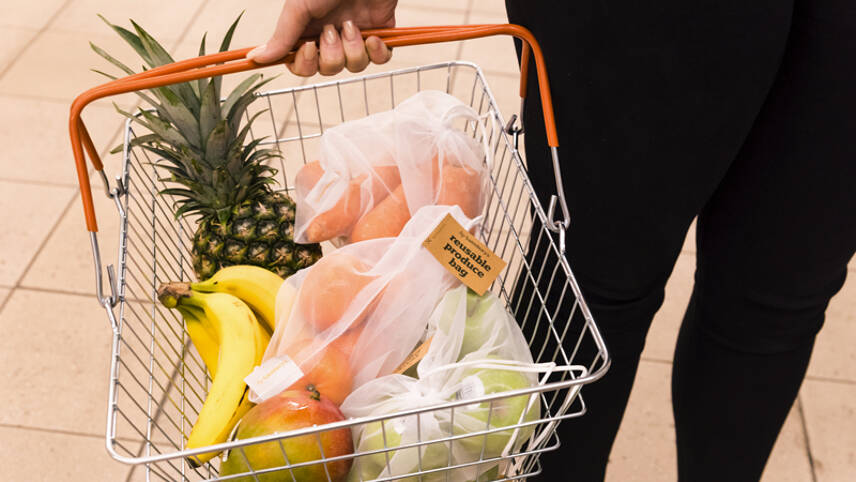Register for free and continue reading
Join our growing army of changemakers and get unlimited access to our premium content

Image: Sainsbury's
Sainsbury’s confirmed on Tuesday (30 July) that it will be removing best-before dates from more than 100 of its pre-packed fresh produce lines in the coming weeks.
More than 130 other, additional product lines will then have their packaging labels changed through to the end of the year. Among these additional changes will be own-brand yoghurts, which will have ‘use-by’ dates replaced with best-before dates.
The retailer had already removed or changed date packaging from more than 1,500 lines, including bananas, apples and plants.
It is hoped that the changes will help to reduce food waste in customers’ homes. Sainsbury’s has stated that the changes should “will give customers more autonomy to make their own decisions on whether their food is good to eat”. It bears noting that all products with labelling changes will have a note on them stating: “no date helps reduce waste”.
Then, on Friday (2 September), Aldi UK confirmed the removal of best-before dates from around 60 of its fresh fruit and vegetable lines. Items set to be affected include apples and pears, citrus fruits, potatoes, carrots and onions.
No time to waste
Retailers are required to have use-by and/or best-before dates on certain food and beverage products under rules set by the Food Standards Agency (FCA). While use-by dates are applied to foods as a ‘deadline’, when a food presents a high food poisoning risk after a certain amount of time, best-before dates are guidelines for when to eat foods.
Research has repeatedly found that many customers mix the two terms up, throwing away food as soon as it reaches its best-before date, because they assume it is unsafe after this point.
Chief among the organisations researching this topic is WRAP. WRAP estimates that removing the best-before dates from the UK’s ten most commonly-wasted fresh fruit and vegetables would reduce the national food waste mountain generated by homes annually by more than 50,000 tonnes.
Sainsbury’s has calculated that its own changes alone could prevent the wasting of up to 11,000 tonnes of food every year, or 17 million individual packages of products.
Aldi has not provided specific forecasts but has stated that the move forms an important part of its plans to reduce food waste by 20% by 2025 and halve it by 2030.
Around 70% of the UK’s food waste is generated at the consumer level, by WRAP estimates, with the majority occurring at home. This fact, and the need to respond to the cost-of-living crisis, has prompted several food retailers to change date labelling this year.
Earlier this month, Asda confirmed the removal of best-before dates from more than 200 fresh fruit and vegetable lines. Staff will be able to check whether products are still in a fit condition to display by scanning a special on-pack code. This move followed the same change at M&S, covering some 300 product lines.
This is not necessarily a new approach; Sainsbury’s has had changes in place for several years now, as has Tesco. But it may well become more common as retailers seek ways to appropriately respond to the UK’s cost-of-living crisis. The Food Foundation has recorded a 12.7% increase in food and non-alcoholic beverage prices over the past 12 months.
The UK Government promised in 2018, through the Resources and Waste Strategy, that food waste collection services would be introduced by every council in England, modelled off of the successful approach in London boroughs. Like other parts of the Strategy, progress here has been stalled by the Covid-19 pandemic. Councils should all provide collections by the end of 2023, Defra has stated.


Please login or Register to leave a comment.